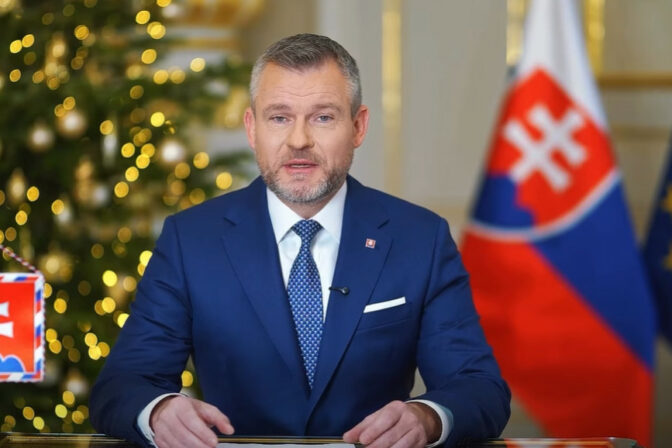BRATISLAVA, January 16, (WEBNOVINY) – According to Slovakia’s Foreign Affairs Minister Mikulas Dzurinda, Slovakia cooperates well with Hungary, currently presiding over the European Union, in 95 percent of affairs, while only 5 percent of cooperation is difficult. The minister further pointed out in a political discussion program O 5 Minut 12 of the public-service STV broadcast on Sunday noon that the Hungarian dual citizenship act “cannot be the alpha and omega of our bilateral relation”. He added that on January 28, a contract between Slovakia and Hungary on a natural gas interconnection is to be signed, which is a very important economic as well as political step.
The aim of the amendment to the Slovak citizenship law should be that Slovak citizens, including ethnic Hungarians, strengthen their relation to the country in which they live. The ruling coalition does not want that Slovak citizens become foreigners in Slovakia. The amendment is to reject all exterritorial affects of the Hungarian law on dual citizenship. Dzurinda reminded that the ruling coalition members KDH and MOST-HID are yet to debate the draft amendment to the law on Slovak citizenship, which has already been submitted to parliament. He believes the parties will find a consensus. KDH proposed that a person with double citizenship would not be able to work for instance at the Police or the Armed Forces. MOST-HID does not agree with the proposal. According to MOST-HID leader Bela Bugar, the dispute between the parties consists in what they consider disloyalty to the Slovak Republic, or whether a citizenship of a second country is an expression of disloyalty.
The law that the Hungarian parliament adopted in May 2010 by strong majority allows ethnic Hungarians living outside Hungary to apply for Hungarian citizenship if they can prove their Hungarian origin, can speak Hungarian and do not pose any danger to the public or national security. Applicants for the citizenship are not required to have a permanent residence on the territory of Hungary. The law took effect on January 1, 2011.
Earlier this week, Minister Dzurinda talked with his Hungarian counterpart Janos Martonyi about the controversial Hungarian media law as well as about granting the right to vote to Hungarians living outside Hungary at a session of the General Affairs Council. Dzurinda opines that the new Hungarian media law is not democratic due to liquidating fines and formation of institutions supervising the media. If the law was carried out with a partisan agenda, it could shut the mouth of the opposition, he thinks.
SITA












